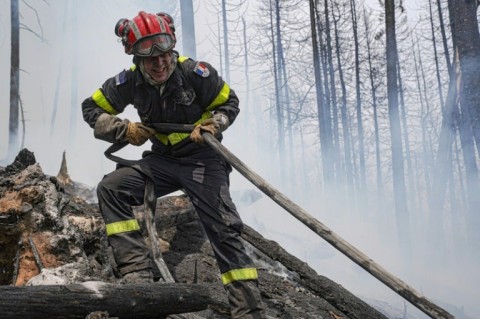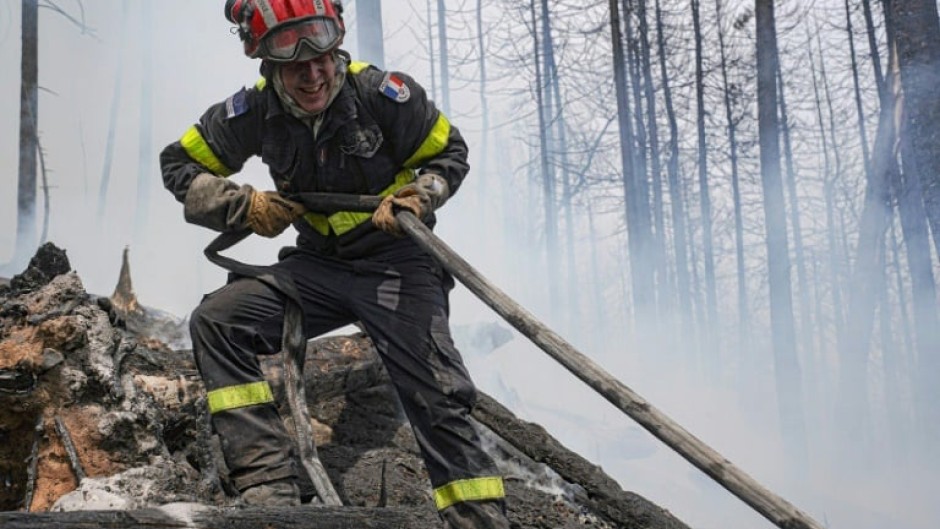
The number of forest fires continues to rise in Canada, climbing on Friday to more than 670 blazes -- more than 380 of them out of control -- with a long and difficult summer ahead.
"The numbers are literally off the charts, with at least three more months left in the active wildfire season," said Michael Norton of the Canadian Ministry of Natural Resources.
And weather forecasts for the coming weeks predict above-average temperatures in many parts of the country in the west, and also in northern Quebec, the worst-hit region.
With nine million hectares (22.2 million acres) already gone up in smoke -- 11 times the average for the last decade -- the absolute annual record set in 1989 has been surpassed.
Authorities tallied 677 active fires in the country on Friday (with 13 new blazes discovered during the day), including 386 that were burning out of control.
Some 155,000 people have been forced to leave their homes at some point due to the fires since the beginning of May, the highest figure for 40 years.
"It's no understatement to say that the 2023 fire season is and will continue to be record-breaking in a number of ways," Norton said, adding that he expected the number of fires to remain above average throughout the summer.
The fires ravage areas on both sides of the country, and areas unaccustomed to fires are affected.
One of the forest fires in northern Quebec alone burned more than one million hectares.
"From evacuations to poor air quality and extreme heat warnings, we are experiencing the reality of climate change effects," Health Minister Jean-Yves Duclos said.
This has forced authorities to rely on an unprecedented level of international aid to support the 3,800 Canadian firefighters on the ground, backed up by the Canadian Armed Forces.
"The firefighting effort has now truly become a global effort," Norton said.
A total of over 3,000 international firefighters -- hailing from countries including New Zealand, Chile, Costa Rica, Mexico, Spain and South Korea -- are hard at work tackling the mega-fires.
Smoke from the fires so far this season has fouled the air in Canada and neighboring United States, affecting more than 100 million people, at times disrupting flights and forcing the cancellation of outdoor events.

